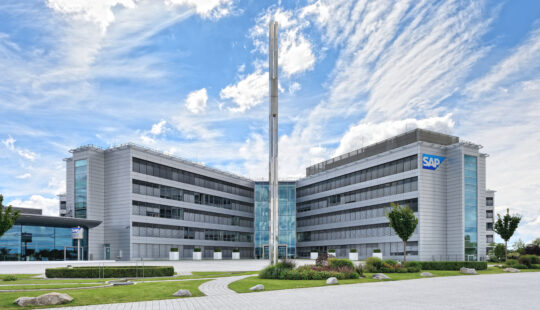It’s overwhelming to think of the world’s largest problems, especially in the midst of a global pandemic. And while this time is somewhat unprecedented, mankind has always faced its fair share of challenges – some we’ve overcome, some are new, and others have always been with us.
While the above sentiments sound pessimistic, there is reason to feel encouraged. One thing that brings this to life is a growing trend, particularly among our two youngest generations – Millennials, born between 1981 and 1996, and Generation Z born between 1997 and 2012.
Thankfully, these two generations have a different perception of business than previous generations. A survey of young activists from the Possibilists found that the main motivator of their work is to contribute to pressing global issues and do something for their community – with 80% of respondents saying that the COVID-19 pandemic increased their desire to make a positive impact. What’s more, both generations are entrepreneurial. In the 2016 Gallup-HOPE Index, it was reported that “about 40% of students say they plan to start a business and/or invent something that will change the world.”
Given this, it’s no wonder we’re seeing the social enterprise and social entrepreneurship sector gain more support globally – and here in Canada! This is immensely encouraging.
The Need for Social Enterprises and Entrepreneurs
There is a distinction between the two categories of ‘social enterprise’ and ‘social entrepreneur.’ However, each is focused on solving a social or environmental problem through a for-profit business model. For a full definition, The Social Enterprise Alliance further describes and differentiates the two.
Of course, these people and organizations cannot be expected to solve humanity’s greatest challenges alone. But they do have a significant role to play. Below are some organizations that have spotted a market opportunity and have capitalized on it. These organizations found a way to do business while also solving societal and environmental problems.
Call-to-Action for Millennials and Generation Z
Along with the Canadian government, SAP is working with Social Shifters for the 2021 Social Shifters Global Innovation Challenge. At SAP, we have invested in the power of social entrepreneurs to help the world run better and improve people’s lives for over a decade. Young people are a shining example of Social Shifters – they are changing the way we live and work, ensuring that economic, social, and environmental sustainability go hand in hand. The challenge is designed for young adults from across the globe, aged 18 to 30 years old, to take entrepreneurial action on social and environmental issues, with prizes of up $10,000. Additionally, finalists received global recognition and exposure at the Social Enterprise World Forum earlier last week.
- The winner of the overall challenge, Elena Höge, is the founder of Yaldi Games. Höge recognized the ability to harness the power of video games and utilized the platform to develop a startup game that creates meaningful entertainment that goes beyond digital. The simulator, Wholesome, inspires children and adults to go outside, connect with nature, and increase their sustainability practices.
- BioMec is unique in its intent to turn an environmental crisis into a social benefit and is the worthy recipient of the $5,000 Climate Action award. BioMec, founded by Marta Vânia Uetela, collects abandoned fishing nets from the sea in Mozambique and transforms these harmful plastic residuals into high-performing prosthetics so that people can experience life with more possibilities and self-esteem.
- I am also thrilled to highlight Claire McLoughin, who represented the winning team from the Canadian category. Her social enterprise, Friendly Composting, is a compost pickup and local product delivery service that she started after moving to a new neighborhood with no public composting options. The Friendly Composting community diverts approximately 3000 kilograms of food waste from the landfill each week.
Each participant has a commitment to supporting a community, improving lives, or helping the environment through an activity that generates revenue. As we’ve seen, the idea of making money and doing good is no longer contradictory. Many young entrepreneurs today are turning this desire to give back into a sustainable business model.
Lastly, thank you to the hundreds of volunteers, including 75 SAP employees from around the world who served as judges in the opening round and professional mentors to finalists. Alexandra van der Ploeg, head of Global CSR at SAP, acted as a finalist judge. Explaining the importance of supporting young entrepreneurs and social enterprises, van der Ploeg said, “In the context of their responsibility towards planet and people, businesses are challenged to do more than just doing no harm. You actually have to look for business opportunities to create positive social and environmental impact. And that’s where the social enterprise sector, in my opinion, comes in. Because, by partnering with the social enterprise sector, the private sector uses their own, as well as the planet’s, limited resources productively and also contributes in the best possible way to a sustainable economy and a just society.”
Our world has no shortage of competing priorities but this challenge and the young changemakers inspire me. It reinforces the importance of investment in future generations to support their fresh perspectives to help us, collectively, overcome these issues.
Cindy Fagen is managing director of SAP Labs Canada.



